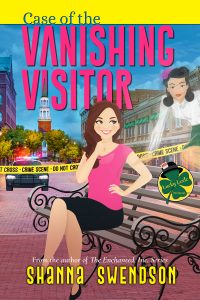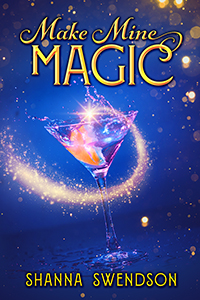TV
Island Fantasies
I’m barely watching any regular TV right now, other than the news and maybe stuff on PBS, but I gave the new version of Fantasy Island a shot this week. I watched the original when I was a kid. It was part of the Saturday-night programming line-up, after The Love Boat but, as I recall, I only got to stay up to watch the whole thing during the summer. While I liked the idea of a vacation where you got to live out your dreams, I recall my main interest being in the guest stars. They seemed to mostly cast people who were known for other shows on the network, so it was a good way to see a favorite actor from another show in a different role. My memories may not be accurate, but it seemed to me that they were a bit cagey as to whether or not there was anything truly supernatural going on, with the fantasies mostly being things that someone with resources could set up. To a large extent, it was The Love Boat on an island, and I recall there being a lot of the guest characters falling in love with each other (or it’s possible that my brain has merged the two shows, since they ran back-to-back).
Then there was the 1998 TV version, which I loved because they took it in more of a true fantasy (as in genre) direction. It had a kind of Twilight Zone vibe, and it was much more overt that there were supernatural things going on. I only remember a few episodes actually airing, but IMDB has airdates for all the episodes that were produced. I wonder if those were planned airdates and the show didn’t actually run then because the way I recall it, they did the usual for ABC (known as the Already Been Cancelled network then) thing at the time of running three episodes, running the preview for the next episode at the end of the third one, and then never showing any more episodes.
Anyway, since I’d liked that version a lot, I tuned in for the new one, and it seems like an uncomfortable hybrid between the two versions, though without the celebrity guest stars (at least, not anyone I recognized from anything else). It’s got that drenched in sunshine, happy vacation resort mood of the original and the obvious supernatural angle of the 1998 version, since the fantasies could only have happened with some kind of magic, but I found myself utterly bored. I didn’t get any sense of the regulars and what their relationships were, and there wasn’t any real tension in the fantasies.
I found that the 1998 version is streaming free on tubi, so I watched the pilot last night to make sure my memories weren’t skewed, and although it is dated and very much a product of its time, I was much more captivated with it. Part of it is the travel agency that sends the guests to the island. I’m a sucker for the “mysterious business you never noticed before is just what you need, and then you can’t find it again” trope, and they completely got me when they used a pneumatic tube to send something from an American city to a remote tropical island. Then there’s the hint that the staff on the island are working off some kind of sentence, so they have to help the guests learn whatever cosmic lesson they’re there for in order to eventually be able to escape from the island. We got to meet most of the regulars and get a sense of what was going on with them before the guests showed up, so there was something to carry us through the episodes and there was a mystery to figure out as to how and why they were there.
So I may skip the new one and just rewatch the 1998 version that’s more to my taste.
When I was considering that “stay in your lane” advice and trying to figure out what I could write that would fit my previous work but still be in a subgenre that sells well, I toyed with the idea of doing a series of paranormal romantic comedies along those lines, though I think I’d do a remote mountain resort instead of a tropical island. Have the regulars on staff with an ongoing storyline and a new couple for each book having to figure things out and get together. But that idea is way on the back burner because I’m less concerned about sticking to a niche, and I’m not excited enough about that idea to have put any additional thought into it.

 This is a twisty little tale that was fun to write. I took a familiar old plot and added the wrinkle of my heroine’s ability to see ghosts. Earlier this year, I found a recent BBC production of The Lady Vanishes on a streaming service. This is a mystery/thriller about a young woman traveling by train across Europe. She strikes up a conversation with a woman seated in her compartment, has tea with her in the dining car, then falls asleep upon returning to their compartment. When she wakes, the woman isn’t there, and when she asks about her, nobody else in the compartment remembers ever seeing her. No one in the dining car seems to have seen her. But the young woman is sure she was talking to someone, and now she’s worried that something happened to her. While watching that movie, I couldn’t help but think about how much more complicated it would be if the heroine could see and talk to ghosts. How would she know if she’d imagined the whole thing, if she’d been talking to a ghost, or if everyone was lying to her?
This is a twisty little tale that was fun to write. I took a familiar old plot and added the wrinkle of my heroine’s ability to see ghosts. Earlier this year, I found a recent BBC production of The Lady Vanishes on a streaming service. This is a mystery/thriller about a young woman traveling by train across Europe. She strikes up a conversation with a woman seated in her compartment, has tea with her in the dining car, then falls asleep upon returning to their compartment. When she wakes, the woman isn’t there, and when she asks about her, nobody else in the compartment remembers ever seeing her. No one in the dining car seems to have seen her. But the young woman is sure she was talking to someone, and now she’s worried that something happened to her. While watching that movie, I couldn’t help but think about how much more complicated it would be if the heroine could see and talk to ghosts. How would she know if she’d imagined the whole thing, if she’d been talking to a ghost, or if everyone was lying to her? I’ve mentioned that I was working on this, but it’s finally here — the e-book and paperback versions of the audiobook Make Mine Magic will be coming next week, released on July 29. You can pre-order at the major retailers.
I’ve mentioned that I was working on this, but it’s finally here — the e-book and paperback versions of the audiobook Make Mine Magic will be coming next week, released on July 29. You can pre-order at the major retailers.